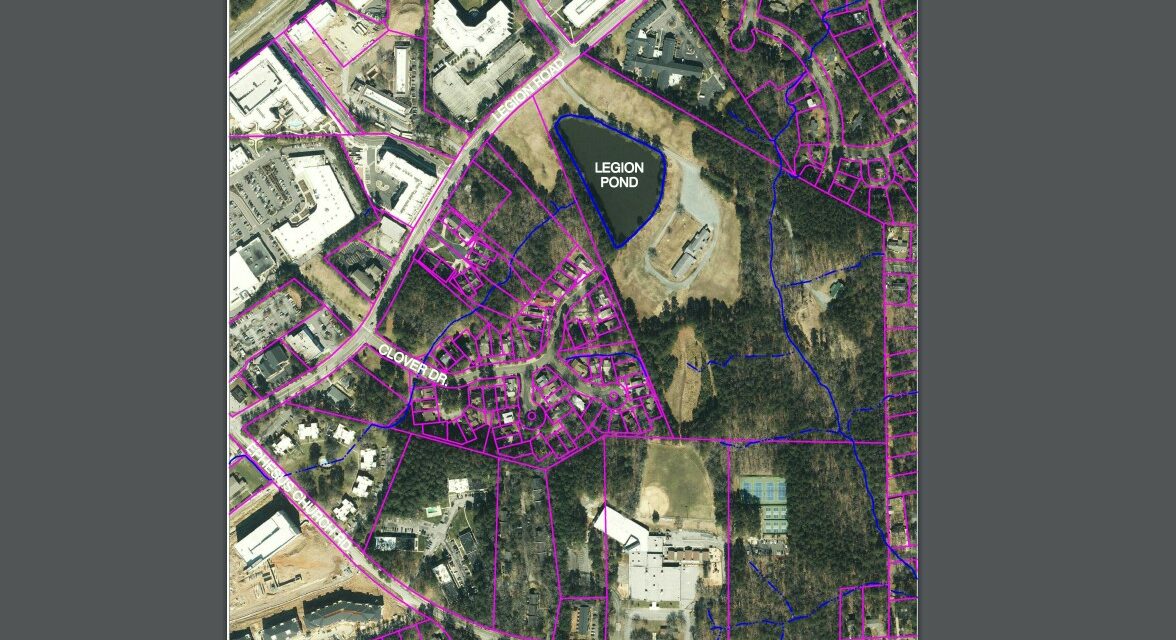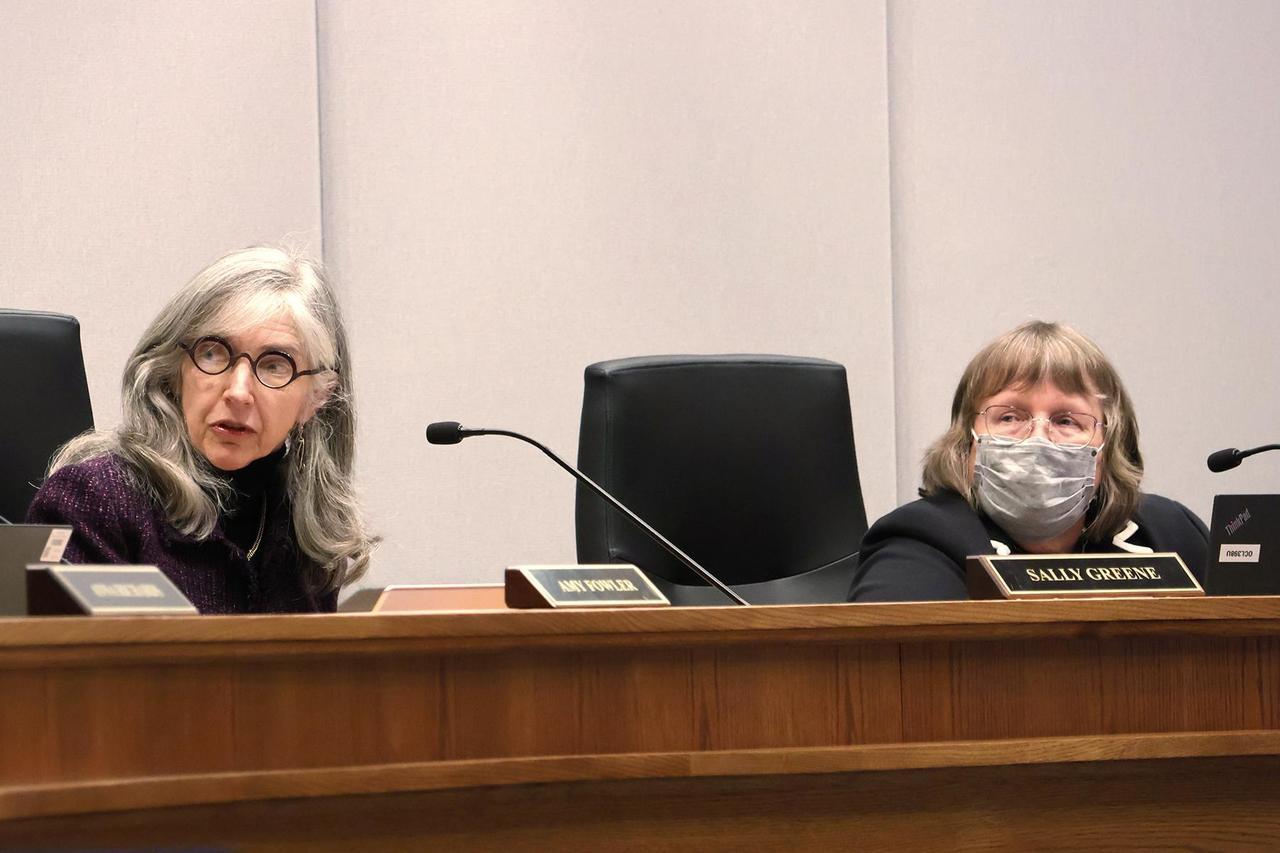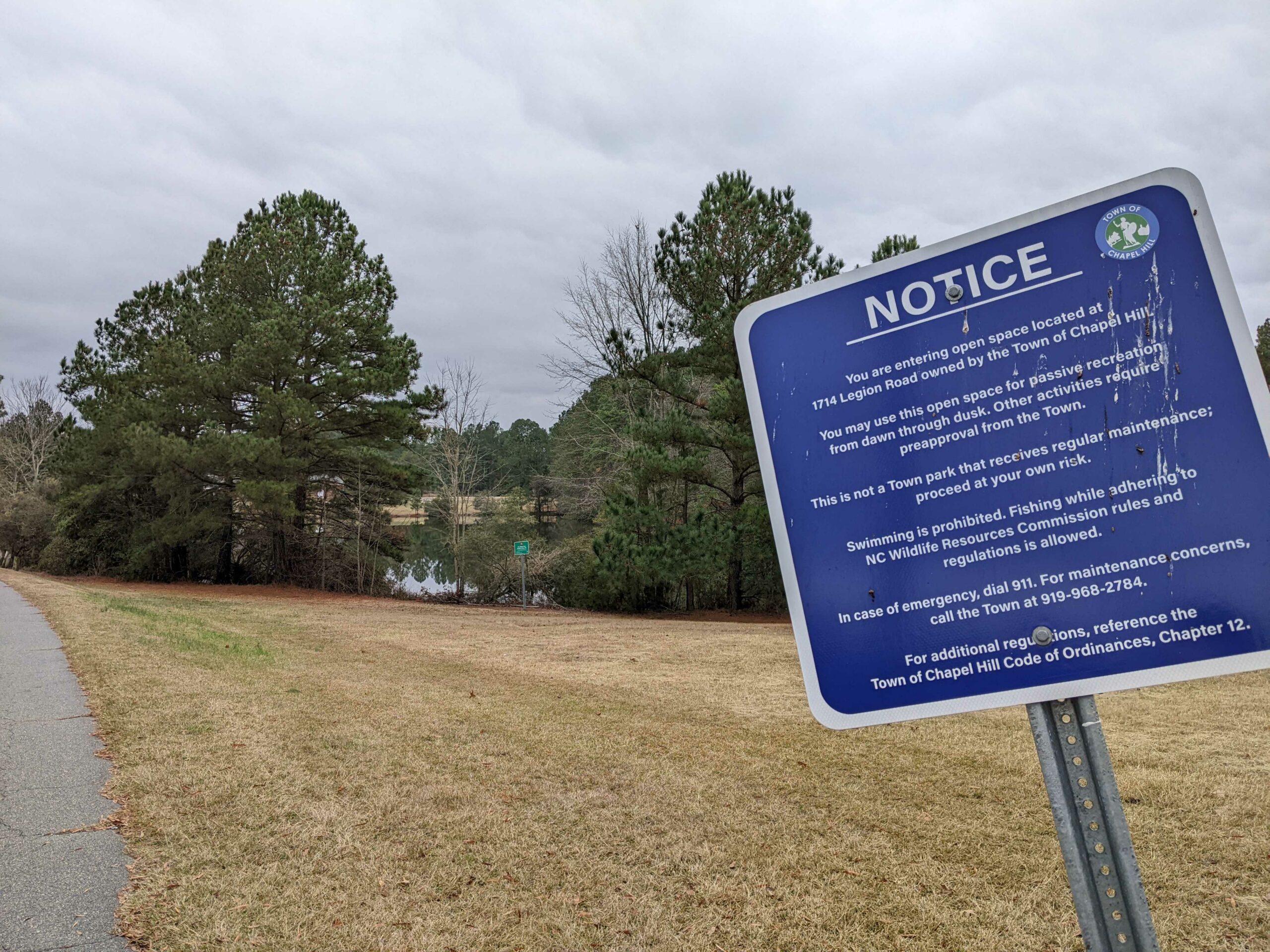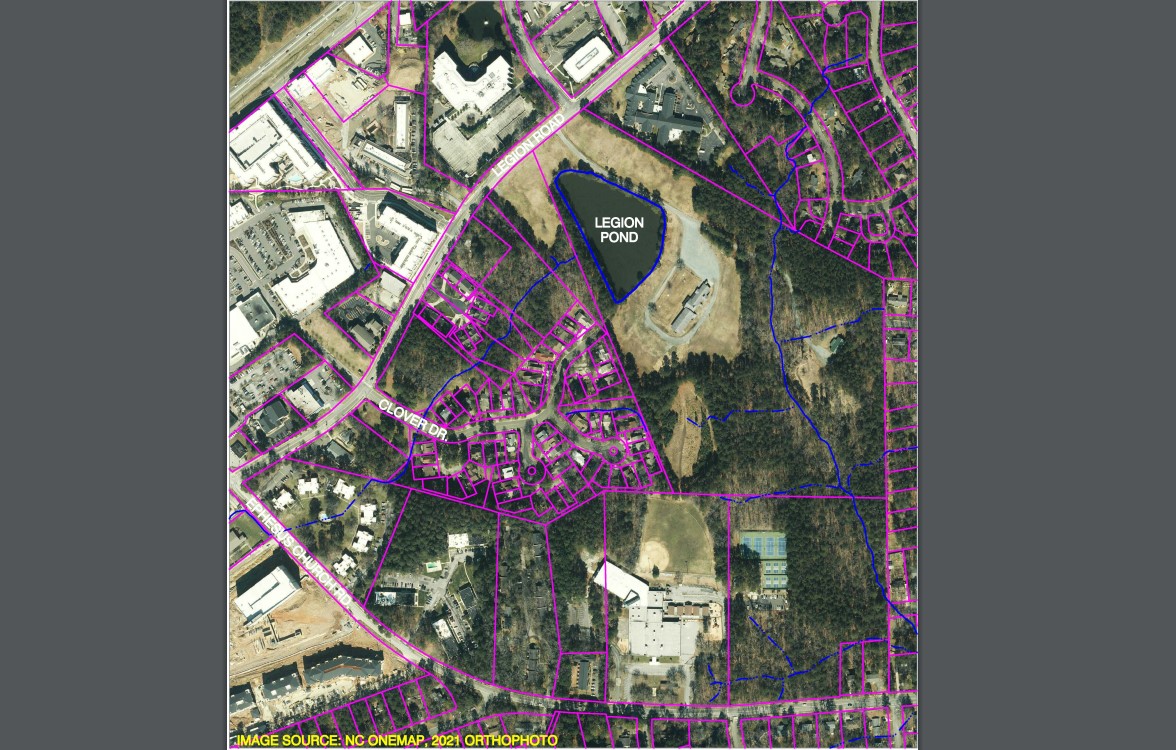The Chapel Hill Town Council unanimously passed a resolution Wednesday night approving a three-story residential development project at 1708 and 1712 Legion Road. The Longleaf Trace development project will be an affordable housing property that will provide 48 affordable housing units for people over the age of 55, and will serve people earning at or below 60% of the average median income (AMI) of $48,500.
The residential building will include an outdoor exercise facility,, a multi-purpose room, a fitness and business center, seating and resident activity areas throughout the building, and on-site property management.
The council approved the conditional zoning request via “Residential-Community Priority Conditional Zoning,” a process it enacted in November 2022, to streamline the process for projects with a significant amount of affordable housing. Under this process, the town council opened and closed the legislative hearing at its Tuesday meeting, and passed the resolution approving the conditional zoning request.
The council also approved stormwater-related deviations from the land use management ordinance (LUMO) guidelines, including locating a stormwater pipe outfall directly into an adjacent stream zone to reduce erosion of a riparian buffer and streambank.
The Greenville-based Taft-Mills Group is the developer of the Longleaf Trace project and focuses its work on affordable housing. Taft-Mills is also the developer of the Tanyard Branch Trace affordable housing project, commonly known as Jay Street apartments. Similar to the Tanyard Branch Trace project, the Taft-Mills Group is partnering with Community Home Trust, an affordable housing nonprofit group that will focus on resident outreach.
The development site is on a 3.2 acre property next to a 36-acre plot of land owned by Chapel Hill. The adjacent Chapel Hill land includes the three-acre Legion Pond, which the town concluded would need to be drained during a June 2023 meeting due to the potential for economic damage of over $200,000 in the event of a dam failure.
Taft-Mills President Dustin Mills said the group was excited about the project because, the group thought the land was uniquely suitable for providing affordable housing with its walkable proximity to grocery stores.
“There’s bicycle lanes,” said Mills, “there’s public transportation at the mouth of the property, which is critically important for our residents, and so we thought that it was the perfect site. We’re very excited about it. We’re really excited about the opportunity to participate in utilizing the Legion Road property’s park component when that does become a reality, as it’s immediately adjacent to us. Our plan contemplates a walking trail that will dead-end into the town’s property,”
Mills spoke about the developer’s adjustments following discussions with the property’s neighbors on Turneberry Lane. Mills spoke to how the group heard residents’ concerns about protecting some space from development plans.
“We are proposing to preserve a third of the site,” Mills said, “and that was key, we believe, in seeking the support of our neighbors to the rear of the site because I think there is some history on this site that previous developers have tried to go over the creek – the outfall of the Legion Pond – and develop that back portion of the site, which you’ll see that we are proposing to not do any development [on] to preserve that space.”
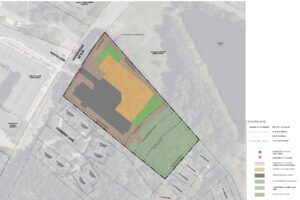
Diagram of the property’s land development plan off of Legion Road, including land designated for the building, an outdoor recreation area, and pedestrian access points.
Mayor Pro Tempore Amy Ryan asked Mills why the group decided to make the affordable housing project for seniors.
“We recognize the need for affordable housing on the family side,” said Mills, “but we did a market study, and we were also very pleasantly surprised with just how many residents who are 55 and older would benefit from these particular units. You think about things like access to grocery and access to public transportation – across all residential fronts, those residents benefit from that, but we believe that this particular site felt like it needed to be an age-restricted [site] because of the size limitations and because of proximity to those amenities.”
“Ultimately, we had things to consider like land price and land size,” continued Mills. “It was a long debate, and we recognize that there’s needs on both sides. But at the end of the day, we felt like we could do a better development on this site if it was an age-restricted efficient building put on the site, and not having three story garden style buildings backing up to our residents at Turnberry Lane.”
Community Home Trust Executive Director Kimberly Sanchez also spoke to the council about the need for senior-specific affordable housing.
“Community Home Trust has seen the need for 55 and up,” said Sanchez. “Just recently, in the last couple of weeks, one of our properties over at the Courtyards came up – that’s a 55 and up community – and we had 85 people on our list. They were happy to have rental or home ownership.”
Council Members Adam Searing and Camille Berry expressed concerns over flooding caused by stormwater. The town manager confirmed that the Legion Pond would need to be drained, consistent with advice received from experts at a June 2023 work session.
Neil Allen, vice president at Qunity, a civil engineering, land planning, and architecture firm working with Taft-Mills on the development, said the project could potentially help the stormwater runoff and flooding when storms occur.
“You should see a reduction in the [runoff from] lower storms,” Allen said. “We have more of those events. You won’t see volume reduction but you’ll see slower release in the other storms which should help the problem that already exists.”
Council Member Melissa McCullough said she believed that while stormwater problems in Chapel Hill were caused by past developments, affordable housing projects that address current needs should still be built so long as they do not worsen stormwater issues in the future.
“We certainly feel the pain of everybody who’s dealing with flooding.” said McCullough, “It’s something that’s a very high priority of the community, but the sad fact is: the reason we have problems now is because development took place for generations without any cognizance to what they were causing in the way of stormwater problems. When the town was diffuse and [had a] low-population, it wasn’t the scale that it is now. But the sad fact is much of even the single family development that we have is about 50% or more impervious surface. That adds up. It’s not really fair to have those problems being created by people in the past and then penalize the people who are trying to provide the needs that we have now – and meeting goals and standards that say we won’t make it worse, and be penalized for the problems that were created in the past. We’re doing what we can, but I think that this is a project that we need.”
Council Member Berry also voiced her support of the project, and said she thinks it would be beneficial for Taft-Mills to partner with the non-profit group Developing Housing/Improving Communities, Inc. (DHIC) to address stormwater related concerns.
“It has also dawned on me that while the town is partnering with DHIC to develop the neighboring property,” Berry said, “that it might be a great opportunity for you to continue to be in conversation with them about how the stormwater is being addressed. I think a team approach would be so welcomed as well. We have looked at doing that in other areas of town and this would be, given the timing, wonderful.”
Council Member Elizabeth Sharp was absent from the meeting, and therefore, did not vote.
Photo via Taft-Mills Group
Chapelboro.com does not charge subscription fees, and you can directly support our efforts in local journalism here. Want more of what you see on Chapelboro? Let us bring free local news and community information to you by signing up for our newsletter.

